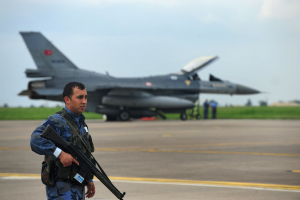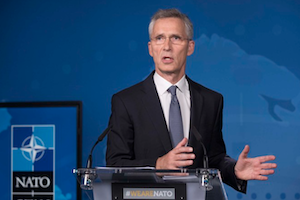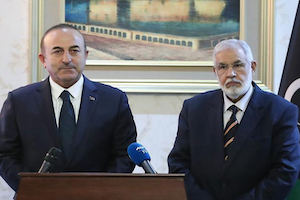Turkey Advances in Africa against Franco-Emirati-Egyptian Entente
By Michaël Tanchum
August 25, 2020
Turkey's expanded military presence in Libya has tilted the geopolitical game-board more in Ankara's favor vis-à-vis France and Egypt and their partner the United Arab Emirates. While motivating the strong backing Paris and Cairo are providing to Greece as it confronts Turkey in the eastern Mediterranean, Ankara's effort to extend Turkey's influence throughout Africa is driving a wider strategic competition between Turkey and France in the Sahel and likewise between Turkey and Egypt in the Horn of Africa. Ankara's advances in Niger in the Sahel and in Ethiopia in the Horn have raised the stakes for Turkey's rivals, pushing them into closer alignment, with the rivalry between Turkey and the Franco-Emirati-Egyptian entente defining one of Africa's main geopolitical fault lines.

Turkey's Libyan Intervention Heightens Franco-Turkish Systemic Rivalry
By Michaël Tanchum
June 23, 2020
On June 18, 2020, NATO Secretary-General Jens Stoltenberg announced the alliance is opening an investigation prompted by France's allegation that one of its naval frigates was targeted for attack by a Turkish naval warship in the Mediterranean as the frigate sought to interdict a civilian Turkish vessel suspected of transporting weapons to Libya. Although Turkey denies the allegation, the incident represents a new escalation in the rising tensions between Turkey and France already inflamed by France's increasing naval cooperation with Cyprus. Following the recent success of Turkey's military intervention to preserve Libya's Government of National Accord, Ankara reportedly plans to establish an air base and a naval base in the country. Reorienting the strategic architecture of the region more in Turkey's favor, the two Libyan bases will greatly boost Turkey's engagement with the nations of North Africa and the Sahel. Facing a potential loss of influence in Africa, France may choose to align more deeply with Turkey's rivals in Libya.

Turkey Enters Libyan Escalation Spiral at Great Risk
By Micha’el Tanchum
December 30, 2019
Turkey upended the Eastern Mediterranean's strategic equation with its late November 2019 signing of maritime boundary and military cooperation agreements with the Tripoli-based Government of National Accord in war-divided Libya. By defining maritime borders with the internationally recognized administration in Tripoli, Ankara ostensibly has broken its regional isolation and gained greater legal standing to challenge the boundaries Greece established with Cyprus and Egypt upon which the current arrangements for Eastern Mediterranean natural gas development depend. While previously compartmentalized, Turkey's formalization of its commitment to Tripoli has interlinked an already tense maritime stand-off in the Eastern Mediterranean to a new escalation spiral in the Libyan Civil War in which Turkey's rivals possess escalation dominance over Turkey.

Turkey Rattled by Weak Hand in Libya as Russia and Egypt Advance
By Micha’el Tanchum
November 27, 2018
On November 13, 2018, Turkish Vice President Fuat Oktay stormed out of an international conference on Libya organized in Palermo, Italy, complaining about “attempts to keep Turkey out of the process” to resolve the chaos in the divided North African nation. Later, the Turkish Vice President vowed that "Turkey will continue to display its righteous and firm stance with determination in Cyprus, Syria and Libya." Oktay's actions and remarks in fact reflect Turkey's weak hand in Libya. A future Turkish show of force in Libya cannot be ruled out, but ultimately the change in the balance of power in North Africa toward Russia and Egypt has inevitably undermined Turkey's already challenging strategic position in the Eastern Mediterranean.



